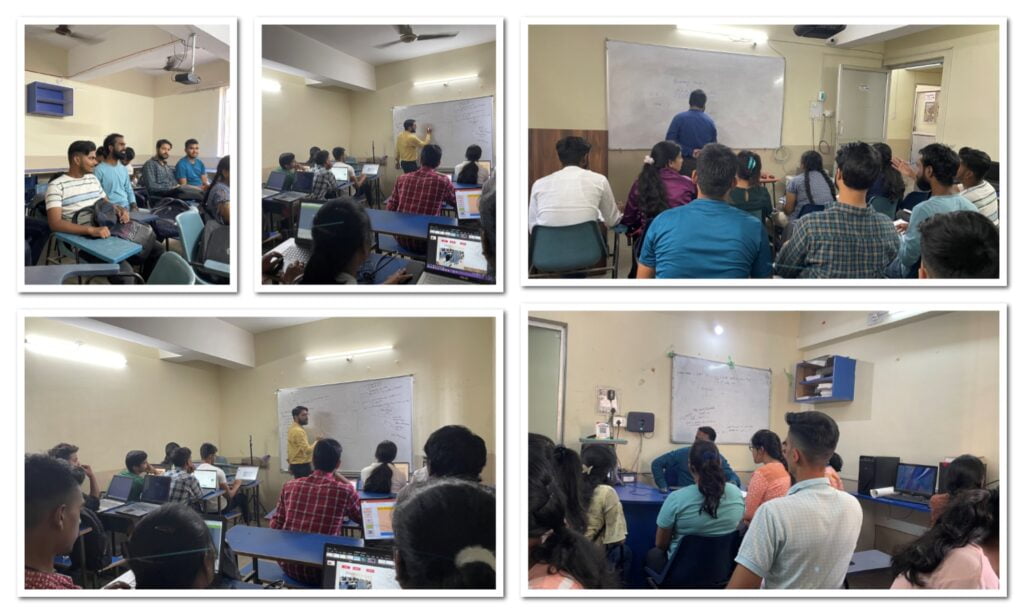Business Executive vs Business Analyst: What’s the Difference? | Emancipation Edutech Pvt. Ltd.

In today’s corporate world, career opportunities in business management and analysis are vast. Among them, the roles of Business Executive and Business Analyst are often misunderstood. While both contribute significantly to organizational growth, their responsibilities, skills, and career paths differ. Understanding these differences is crucial for students and professionals looking to choose the right career path.
At Emancipation Edutech Pvt. Ltd., Ranchi, Jharkhand, we provide career-oriented training that helps aspiring professionals identify the right role and build the skills to excel in it.
Who is a Business Executive?
A Business Executive is primarily responsible for managing teams, implementing strategies, and ensuring organizational growth. Their role focuses on leadership, people management, and decision-making. Executives often oversee operations, set goals, and ensure that the company’s objectives are achieved.
Key Responsibilities of a Business Executive:
- Leading teams and motivating employees.
- Planning and executing business strategies.
- Building and maintaining client and stakeholder relationships.
- Driving sales, marketing, or operational performance.
- Making decisions to improve efficiency and profitability.
Skills Required: Leadership, communication, time management, negotiation, adaptability.
Who is a Business Analyst?
A Business Analyst (BA) plays a more technical and analytical role. They act as a bridge between business needs and IT solutions, analyzing data, identifying problems, and suggesting improvements. Business analysts focus on processes, systems, and data-driven decision-making.
Key Responsibilities of a Business Analyst:
- Collecting and analyzing business requirements.
- Evaluating current systems and suggesting improvements.
- Conducting market and process research.
- Collaborating with stakeholders to identify business needs.
- Documenting requirements and helping with IT implementations.
Skills Required: Critical thinking, problem-solving, analytical skills, technical knowledge, attention to detail.
Business Executive vs Business Analyst: Key Differences
| Aspect | Business Executive | Business Analyst |
|---|---|---|
| Primary Focus | People & Strategy | Processes & Data |
| Role Type | Leadership & Management | Analytical & Technical |
| Core Skills | Leadership, Communication, Decision-making | Analysis, Critical Thinking, Technical Knowledge |
| Responsibilities | Managing teams, driving growth, setting goals | Analyzing systems, solving problems, process improvement |
| Career Path | Manager → Senior Manager → Director → Executive Roles (CEO, COO) | Junior BA → Senior BA → Business Architect → Product/Project Manager |
| Work Environment | More client-facing, leadership-driven | More data-driven, research-oriented |
Both roles are critical to business success, but they require different mindsets and career aspirations.
Salary and Growth Potential
- Business Executives: Entry-level salaries range between ₹4–6 LPA, mid-level between ₹8–15 LPA, and senior executives can earn ₹20+ LPA. Growth often leads to leadership positions like COO or CEO.
- Business Analysts: Freshers earn around ₹4–7 LPA, mid-level professionals ₹10–15 LPA, and senior analysts or business architects earn ₹18+ LPA. Growth often leads to project or product management roles.
Choosing the Right Path
- If you are interested in leadership, people management, and strategic decision-making, a career as a Business Executive is ideal.
- If you prefer problem-solving, working with data, and improving processes, the Business Analyst role may suit you better.
Benefits of Training at Emancipation Edutech Pvt. Ltd.
At Emancipation Edutech Pvt. Ltd., Ranchi, Jharkhand, we help aspiring professionals prepare for both career paths with specialized training programs.
Our Benefits Include:
- Expert Trainers – Learn from experienced professionals with corporate backgrounds.
- Practical Learning – Case studies, simulations, and industry-relevant projects.
- Skill Development – Leadership, communication, analytical, and technical skills.
- Career Guidance – Personalized mentorship to help you choose between executive and analyst roles.
- Placement Support – Connect with recruiters from leading MNCs and startups.
Course Outcomes
By training with Emancipation, learners can expect:
- A clear understanding of executive vs analyst career paths.
- Strong soft skills for leadership or analytical roles.
- Better job opportunities in reputed organizations.
- A competitive edge in the job market with hands-on exposure.
- Long-term career growth and professional confidence.
Final Thoughts
Both Business Executives and Business Analysts are essential to organizational success, but they serve different purposes. Executives focus on leadership and strategy, while analysts focus on data and process improvement. Choosing the right path depends on your interests, strengths, and career goals.
At Emancipation Edutech Pvt. Ltd., Ranchi, we provide the guidance, skills, and training you need to succeed in either role. Whether you aim to lead teams as a business executive or analyze processes as a business analyst, our programs ensure you are job-ready and future-ready.
- SUMIT SINGH
Phone Number: +91-9835131568 - Email ID: teamemancipation@gmail.com
- Our Platforms:
- Digilearn Cloud
- EEPL Test
- Live Emancipation
- Follow Us on Social Media:
- Instagram – EEPL Classroom



